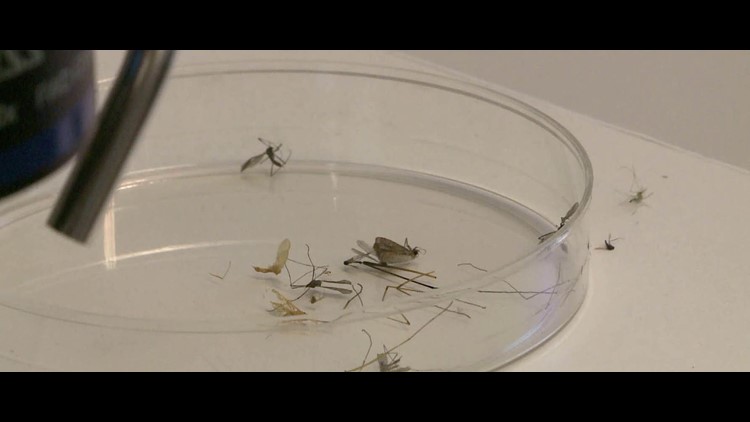WETHERSFIELD — Mosquitoes in Wethersfield have tested positive for West Nile Virus, the Connecticut Department of Public Health announced Monday. State officials trap and collect mosquitoes from 91 trap sites in 72 cities and towns across Connecticut.
Two of those sites are located within the Central Connecticut Health District, one in Newington and the other in Wethersfield. Earlier in the summer, mosquitos testing positive for WNV were collected from the trapping site in Newington.
So far in 2016, mosquitos infected with WNV have been found in eighteen towns in Connecticut: Bridgeport, Cromwell, Darien, E. Hartford, Easton, Fairfield, Hartford, Milford, New Haven, Newington, Stamford, Stratford, Waterford, West Hartford, West Haven, Westport and now Wethersfield. There has been one person testing positive for WNV in Connecticut so far this year. The Milford resident age 70-79 years old, did not travel outside of Connecticut before contracting the illness in August.
To reduce the risk of being bitten by mosquitoes, please use the following personal protection measures:
- Avoid outdoor activities one hour before and one hour after dawn and dusk when mosquitoes are most active.
- Wear long sleeved shirts and long pants when outdoors; it is especially important to cover the arms and legs of children.
- When outside, use mosquito repellents containing DEET, picaridin, IR3535, some oil of lemon eucalyptus or paramenthane-diol. Follow the directions on the package. No product containing DEET should be used on infants less than two months old.
- Cover babies’ playpens and carriages with mosquito netting when outdoors.
- Avoid camping near fresh water swamps and use mosquito netting in tents.
- Stay indoors when mosquitoes are numerous.
- Eliminate sources of standing water such as stagnant ponds, ditches, flower pots and old tires, as mosquitoes only need a few tablespoons of water to lay eggs. Drain and turn over children’s pools, clean clogged gutters, and flush birdbaths and fountains once or twice a week. Dispose of tin cans, plastic containers and any similar containers that have accumulated on your property, and drill holes in the bottoms of recycling containers that are left outside.
- Make sure your property is graded properly and has adequate drainage. Look for places where rainwater collects and fill all holes and depressions. Mosquitoes will breed in any puddle that lasts for more than 4 days.
- Store boats, wheelbarrows, and containers upside down. If you have a pond, be sure it is aerated or stocked with fish such as goldfish or minnows, which eat mosquito larvae.
- Patch holes in screens and make sure screens are tightly attached to doors and windows.
- Use low toxicity insecticides and always follow the directions on the products. When applying sprays, be sure to keep the wind at your back, carry the spray away from you and avoid personal contact with it and excessive inhalation of spray materials.
- Place bat houses on your property.
The majority of people infected with West Nile Virus, experience no symptoms. Although there is no cure, the symptoms of West Nile Virus can be treated in most cases. Symptoms usually occur 3-14 days after being bitten by an infected mosquito and may include: slight fever, body aches, headache, rash and conjunctivitis. However, anyone experiencing a high fever, stiff neck severe headache, disorientation, vision loss, numbness or muscle weakness should consult a doctor, because serious infections can result in neurological disease and in rare cases, death. Those individuals at risk for developing a severe illness include the elderly, the very young, and those with compromised immune systems.
Anyone with questions or concerns about mosquito control, WNV or any public health issue may contact the Central Connecticut Health District, serving the towns of Berlin, Newington, Rocky Hill and Wethersfield by clicking here or by calling (860)721-2822.



